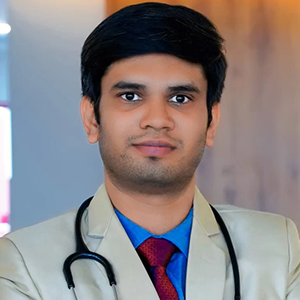Address: 57/a, Phase 1, Shapur Nagar, Chinthal, Jeedimetla, Office Open: 9.00 am - 8.00 pm Email: info@ramrajhospitals.com


Gastroenterology Doctor in Shapur Nagar, Jeedimetla
Complete Care for All Abdominal Issues, in Experienced Hands
At RamRaj Hospitals, we specialize in diagnosing and treating the full spectrum of gastrointestinal and hepatobiliary (HPB) conditions. From routine endoscopic screenings to complex liver and pancreas surgeries, our integrated medical and surgical team ensures you receive the most advanced, compassionate care—24×7.
Treatment & Procedures

Diagnostic Endoscopy & Colonoscopy:
- Upper GI Endoscopy: Direct visualization and biopsy of the esophagus, stomach, and duodenum for accurate diagnosis of ulcers, GERD, and more.
- Colonoscopy & Sigmoidoscopy: Screening and removal of polyps to prevent colorectal cancer; targeted evaluation of lower GI symptoms.
Therapeutic Interventions
- Polypectomy & Polyp Surveillance: Safe removal of precancerous growths and ongoing monitoring.
- Esophageal Dilation: Relief of strictures and swallowing difficulties.
Surgical Gastroenterology & HPB Surgery:
- Appendicitis & Diverticular Disease: Emergency and elective surgeries with minimal downtime.
- Gallbladder Disease & Cholecystectomy: Laparoscopic removal with rapid recovery.
- Gastroesophageal Reflux Disease (GERD) & Nissen Fundoplication: Surgical correction to restore normal function.
- Hernia & Rectal Prolapse Repairs: Durable solutions for hernias and prolapse with laparoscopic and open techniques.
- Hepatobiliary & Pancreatic Surgery: Including Whipple procedure and complex pancreatic resections.
- Colorectal & Proctologic Surgery: Addressing colorectal cancer, inflammatory bowel disease, and anorectal disorders.
- Splenectomy & Transplant Surgery: Specialized removal and organ transplant support.
- Robotic & Laparoscopic Surgery: Precision minimally invasive techniques for faster healing.
About Us
Why Choose RamRaj Hospitals for Gastroenterology Care?
Choosing the right healthcare provider is crucial. At RamRaj Hospitals, we combine expert medical knowledge, advanced technology, and compassionate care to deliver outstanding outcomes. Our hospital is known for:
Advanced Laparoscopy & Robotic Surgery: Leading-edge platforms for safer, more precise operations.
Complex GI & HPB Expertise: From routine endoscopy to transplant surgery—comprehensive, integrated care under one roof.
24×7 Emergency Services: Round-the-clock availability for acute abdominal crises.
Patient-Centric Protocols: Personalized treatment plans, clear communication, and robust follow-up ensure you’re never alone on your journey to health.
Meet Our Specialist
Dr. P Krishna Chaitanya

Dr. P Krishna Chaitanya is a leading specialist in general surgery and laparoscopy at RamRaj Hospitals. With extensive experience and a proven track record in performing advanced laparoscopic procedures, Dr. Chaitanya brings expert care and innovative techniques to every patient. His commitment to excellence has made him a sought-after laparoscopic surgeon in Hyderabad.
Learn more about Dr. P Krishna Chaitanya on our Expert Team page.
- With 13 years of experience, Dr. Chaitanya has successfully performed numerous minimally invasive surgeries, ensuring optimal outcomes for patients.
- He takes a personalized approach to care, carefully planning each procedure to meet individual patient needs.
- Patients in Hyderabad, Jeedimetla, and Shapurnagar trust his expertise when searching for a ‘Laparoscopic Surgeon nearby’.
DR.J C RAJIV REDDY MS GEN.SURG (CONSULTANT GENERAL SURGEON)
Dr. J C Rajiv Reddy, MS Gen.Surg, is a highly experienced Consultant General Surgeon at RamRaj Hospital in Shapur, Hyderabad. With extensive expertise in performing a wide range of general surgical procedures, Dr. Reddy is dedicated to providing advanced and compassionate care for his patients. His patient-centered approach ensures the highest standards of treatment and recovery.

Frequently Asked Questions (FAQs)
You’ll receive mild sedation, a brief procedure time (15–30 minutes), and post-procedure monitoring to ensure you recover safely before going home.
Our specialists use advanced imaging, endoscopy, and lab tests to tailor a plan—often beginning with medical therapy and advancing to surgery only when necessary.
It’s a major operation for pancreatic head tumors, reconstructing digestive pathways to remove cancerous tissue and minimize impact on digestion.
Yes—routine screenings in adults over 45 (or earlier if you have risk factors) can detect precancerous polyps before they turn malignant.
While we don’t perform transplants on-site, our hepatobiliary team provides pre- and post-transplant care in collaboration with regional transplant centers.
Patient Testimonials & Success Stories
Our testimonials reflect our dedication to excellence, compassionate care, and high-quality service.
santosh tinku
“I highly recommend this hospital in Shapur! The doctors are extremely experienced and knowledgeable. The facilities are top-notch and the staff is friendly and helpful. I received excellent care and treatment here. Definitely the best hospital in Shapur!”
Himaja Srivaishnavi
“We have admitted our grandmother due to health issues and the outcome is something we are really happy with!. The hospital staff are really good and caring, irrespective of any factors they are ready to treat and give best medications. The treatment is smooth.”
Pavani Chunchu
“Hospital was having good services , taking good care of patients explaing everything in a humble manner. One of the best hospital in Shapur.”
Schedule an Appointment
Ready for expert digestive health care? Book your appointment now or Call us at 077999 60611 to speak with our gastroenterology team. At RamRaj Hospitals, we’re committed to delivering integrated, advanced, and compassionate abdominal care—anytime you need us.
